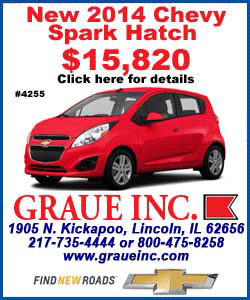|
 The United States was set to follow suit with its own tougher
sanctions later on Friday, heaping pressure on Russian President
Vladimir Putin after Russia annexed Ukraine's Crimea region and sent
troops to back pro-Russian separatists in eastern Ukraine. The United States was set to follow suit with its own tougher
sanctions later on Friday, heaping pressure on Russian President
Vladimir Putin after Russia annexed Ukraine's Crimea region and sent
troops to back pro-Russian separatists in eastern Ukraine.
However, the drive for tougher EU sanctions faces growing opposition
from a number of EU countries that fear retaliation from Russia, the
bloc's biggest energy supplier.
Russian Foreign Minister Sergei Lavrov said the EU was "choosing the
path of disrupting the peace process", and that Moscow would respond
"calmly, appropriately and, most of all, from the need to protect
our interests", the Interfax agency reported.
In a move to assuage critics, the EU has said it could lift some or
even all of the sanctions within weeks - if Moscow abides by a
fragile truce in Ukraine and respects a peace plan.
Publishing the latest sanctions list in the EU's Official Journal,
EU governments said it was "appropriate to take further restrictive
measures in response to Russia's actions destabilizing the situation
in Ukraine".
Russia has already banned all imports of food from the United States
and all fruit and vegetables from Europe in response to previous
Western sanctions.

Its response to the latest Western sanctions may include caps on
used car imports and other consumer goods, a Kremlin official was
quoted as saying on Thursday.
At the same time as stepping up sanctions, the EU will offer Russia
more time to adjust to a European trade pact with Ukraine at
Brussels talks on Friday, diplomats say, moving to ease tensions
over an accord at the center of the Ukraine crisis.
POLITICIANS TARGETED
The latest sanctions included asset freezes and travel bans on Igor
Lebedev and other deputy speakers of the Russian lower house of
parliament, on Vladimir Zhirinovsky, an outspoken nationalist
politician, and on a number of leaders of pro-Russian separatists in
eastern Ukraine.
Also targeted was Sergei Chemezov, described as a close associate of
Putin's from his days as a KGB officer in communist East Germany.
Chemezov is chairman of Rostec, a leading defense and industrial
group that includes arms supplier Rosoboronexport and a firm that is
planning to build energy plants in Crimea.
This brings the total of people under EU sanctions to 119, while 23
entities remain under asset freeze in the EU.
State-owned Rosoboronexport said it did not expect the sanctions to
have an impact on its business.
(Full text:
http://eur-lex.europa.eu/legal-content/EN/TXT/PDF/?uri=OJ:L:2014:271:FULL&from=EN)
The new sanctions bar EU firms from providing services such as
drilling and well-testing for deep water oil exploration and
production, Arctic oil exploration and production, or shale oil
projects in Russia.
As EU officials have said before, the new sanctions put Russia's top
oil producers and pipeline operators, Rosneft , Transneft and
Gazprom Neft, on a list of state-owned firms whose ability to raise
capital on European markets will be restricted.
[to top of second column]
|

EU sanctions do not include the gas sector and in particular
state-owned Gazprom, the world's biggest gas producer and the
biggest gas supplier to Europe.
The battle-tank maker Uralvagonzavod [URALG.UL], the aerospace firm
Oboronprom [GKROSO.UL], maker of Mil military helicopters, and the
state-controlled United Aircraft Corp (UAC), which produces MiG and
Sukhoi warplanes, are barred from raising new capital in Europe via
securities with a maturity of more than 30 days.
MILITARY TECHNOLOGY RESTRICTED
The EU barred the export of technology that can have military uses
to nine Russian firms, including Kalashnikov, maker of the famous
AK-47 assault rifle.
An earlier round of EU sanctions barred EU investors from buying or
selling new bonds or equity with a maturity of more than 90 days
issued by major state-owned Russian banks Sberbank, VTB Bank,
Gazprombank, Vneshekonombank (VEB) and Russian Agriculture Bank
(Rosselkhozbank).
The latest measures bar trade in new securities issued by the same
five banks with a maturity exceeding 30 days.
Ukraine's President Petro Poroshenko said the fresh EU sanctions
highlighted the support his country was receiving: "I never felt
before this level of solidarity," Poroshenko told a conference in
Kiev, also citing the pledges of support he received at a NATO
summit in Wales last week.
"I feel myself a full member of the European family."
Ukraine made an historic shift away from Russia in June by signing a
free-trade accord with the EU, turning its back on its old Soviet
master and on a customs union with Russia, Belarus and Kazakhstan.
Rows over the pact late last year triggered the unrest that toppled
Ukraine's Moscow-backed leader in February.
European Trade Commissioner Karel De Gucht was to set out ways to
avoid penalizing Russian exporters in meetings with Russian Economy
Minister Alexei Ulyukayev and Ukrainian Foreign Minister Pavlo
Klimkin in Brussels later on Friday.

Some European officials believe Moscow could use disruptions to the
natural gas deliveries on which the EU depends as its trump card in
the confrontation over Ukraine.
Slovak gas importer SPP saw a roughly 10 percent decrease in gas
supplies from Russia for a third day in a row on Friday, a spokesman
said.
(Editing by Alastair Macdonald and Kevin Liffey)
[© 2014 Thomson Reuters. All rights
reserved.] Copyright 2014 Reuters. All rights reserved. This material may not be published,
broadcast, rewritten or redistributed. |